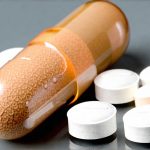Chronic bladder pain, often associated with conditions like Interstitial Cystitis (IC), can be debilitating, significantly impacting quality of life. Many individuals seek alternative or complementary approaches alongside conventional treatments to manage their symptoms effectively. While pharmaceuticals play a role for some, the potential side effects and limited long-term efficacy often drive exploration into natural remedies. A cornerstone of these explorations is understanding inflammation’s role in bladder pain – recognizing that reducing inflammation can potentially alleviate discomfort and improve bladder function. However, navigating the world of ‘natural’ solutions requires caution, as what works for one individual may not work for another, and some substances can even exacerbate bladder symptoms.
This article delves into a selection of natural anti-inflammatories considered relatively safe for individuals experiencing bladder pain, emphasizing the importance of personalized approaches and consultation with healthcare professionals. It’s crucial to remember that these are complementary strategies, not replacements for medical care. We will explore how specific compounds found in foods, herbs, and supplements can potentially modulate inflammation and ease bladder discomfort, while also highlighting potential cautions and interactions. The aim is to provide informed insights into harnessing nature’s power responsibly within a comprehensive pain management plan, always prioritizing safety and individualized assessment.
Dietary Approaches & Inflammation Management
The foundation of any effective natural anti-inflammatory strategy begins with diet. A dietary pattern rich in anti-inflammatory foods while minimizing pro-inflammatory triggers can significantly impact bladder health. The Western diet, characterized by processed foods, sugar, and unhealthy fats, often fuels chronic inflammation throughout the body – including within the urinary tract. Conversely, a Mediterranean-style diet, abundant in fruits, vegetables, whole grains, lean proteins, and healthy fats, offers potent anti-inflammatory benefits. Specific dietary modifications can prove particularly helpful for bladder pain sufferers:
- Elimination Diet: Identifying food sensitivities is crucial. Common bladder irritants include caffeine, alcohol, spicy foods, citrus fruits, artificial sweeteners, and tomatoes. An elimination diet, under the guidance of a healthcare professional or registered dietitian, can help pinpoint trigger foods.
- Increase Omega-3 Fatty Acids: Found in fatty fish (salmon, mackerel, sardines), flaxseeds, chia seeds, and walnuts, omega-3s possess powerful anti-inflammatory properties. They help balance the body’s inflammatory response and may reduce bladder pain.
- Hydration is Key: Adequate water intake is essential for overall health and bladder function. It helps dilute urine, reducing irritation and flushing out potential irritants.
Beyond specific foods, focusing on gut health is paramount. A healthy gut microbiome plays a critical role in regulating inflammation throughout the body. Probiotic-rich foods like yogurt (if tolerated), kefir, sauerkraut, and kimchi can help foster a balanced gut flora, potentially lessening systemic inflammation and its impact on bladder pain.
Specific Anti-Inflammatory Compounds & Supplements
While dietary changes form the cornerstone of anti-inflammatory strategies, certain compounds found in supplements or herbs may offer additional support. Curcumin, the active component of turmeric, is renowned for its potent anti-inflammatory effects. Studies suggest it can modulate inflammatory pathways and potentially reduce bladder pain symptoms. However, curcumin has poor bioavailability (meaning it’s not easily absorbed by the body). Combining it with piperine (found in black pepper) significantly enhances absorption. Similarly, ginger contains compounds like gingerol that exhibit anti-inflammatory properties and may offer relief from pain. Boswellia serrata, an Ayurvedic herb, is another promising option known for its ability to inhibit inflammatory enzymes.
It’s vital to remember that supplements are not regulated as strictly as pharmaceuticals. Quality control can vary significantly between brands. Always choose reputable brands that undergo third-party testing to ensure purity and potency. Furthermore, always discuss any supplement regimen with your healthcare provider, as they can interact with medications or have contraindications depending on individual health conditions. Dosage is also crucial; follow label instructions or the guidance of a qualified practitioner.
Understanding Pelvic Floor Dysfunction & Inflammation
Pelvic floor dysfunction (PFD) frequently co-exists with IC/bladder pain syndrome and significantly contributes to symptom severity. A tight or dysfunctional pelvic floor can put pressure on the bladder, exacerbating pain and urgency. Inflammation plays a key role here – chronic muscle tension can lead to localized inflammation within the pelvic floor muscles themselves, creating a vicious cycle of pain and dysfunction. Addressing PFD is therefore essential for comprehensive management.
- Pelvic Floor Physical Therapy: This involves specialized exercises to release tension in the pelvic floor muscles, improve coordination, and restore normal function. A skilled physical therapist can tailor a program specifically to your needs.
- Mindful Relaxation Techniques: Stress and anxiety can tighten the pelvic floor muscles. Practices like deep breathing exercises, meditation, and yoga can promote relaxation and reduce muscle tension.
- Trigger Point Release: Identifying and releasing trigger points (sensitive knots) within the pelvic floor muscles can provide significant pain relief. This is often done with a physical therapist or trained practitioner.
The Role of Magnesium & Vitamin D
Magnesium deficiency has been linked to increased inflammation and muscle tension, potentially exacerbating bladder pain. Magnesium plays a crucial role in nerve function and muscle relaxation. Supplementing with magnesium (under the guidance of a healthcare professional) may help alleviate pelvic floor tension and reduce bladder discomfort. Different forms of magnesium exist – citrate, glycinate, and oxide being common options – each with varying absorption rates and effects.
Vitamin D deficiency is also prevalent and associated with chronic inflammation. Vitamin D plays a vital role in immune function and regulating inflammatory responses. Maintaining adequate vitamin D levels through sunlight exposure, diet (fatty fish, fortified foods), or supplementation may help modulate inflammation and support overall health. However, excessive vitamin D intake can be harmful; blood tests are recommended to determine appropriate dosage. Considering safe natural diuretics can also aid in maintaining healthy hydration levels.
Caution & Personalized Approach
It’s crucial to reiterate that natural anti-inflammatories are not a one-size-fits-all solution. What works for one person may not work for another, and some substances can even worsen bladder symptoms. Individuals with pre-existing medical conditions, allergies, or those taking medications should always consult their healthcare provider before starting any new supplement regimen or making significant dietary changes. If you are concerned about potential interactions between urology drugs and other health conditions such as high blood pressure, read what urology drugs are safe for people with high blood pressure. Listen to your body, track your symptoms, and adjust your approach accordingly. A personalized plan, developed in collaboration with a healthcare professional, is the most effective way to manage bladder pain naturally and safely. If you’re considering medication options for nerve disorders, learning about best medications can be a useful first step. Remember that consistency is key – incorporating these strategies into your daily routine can yield the best results over time.





















